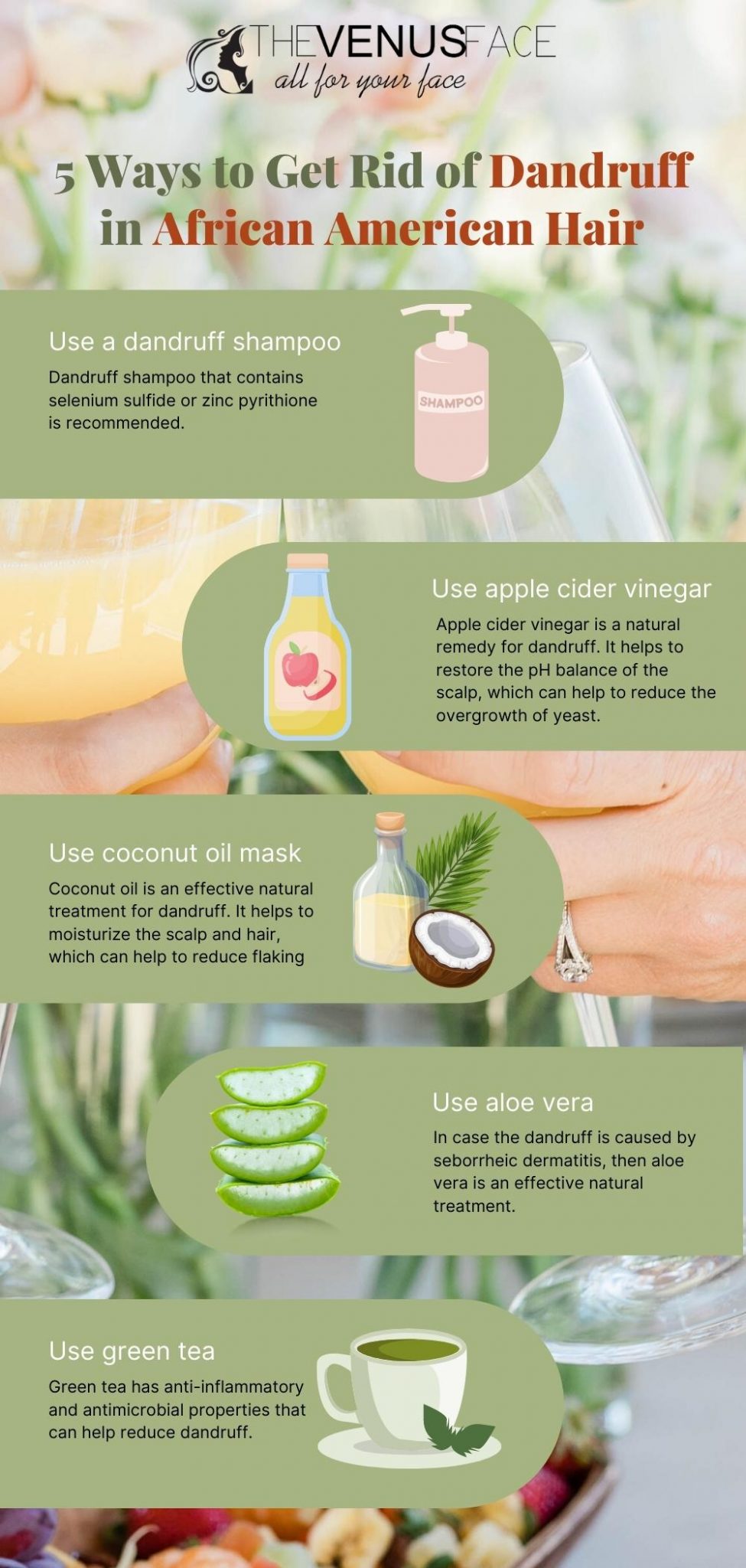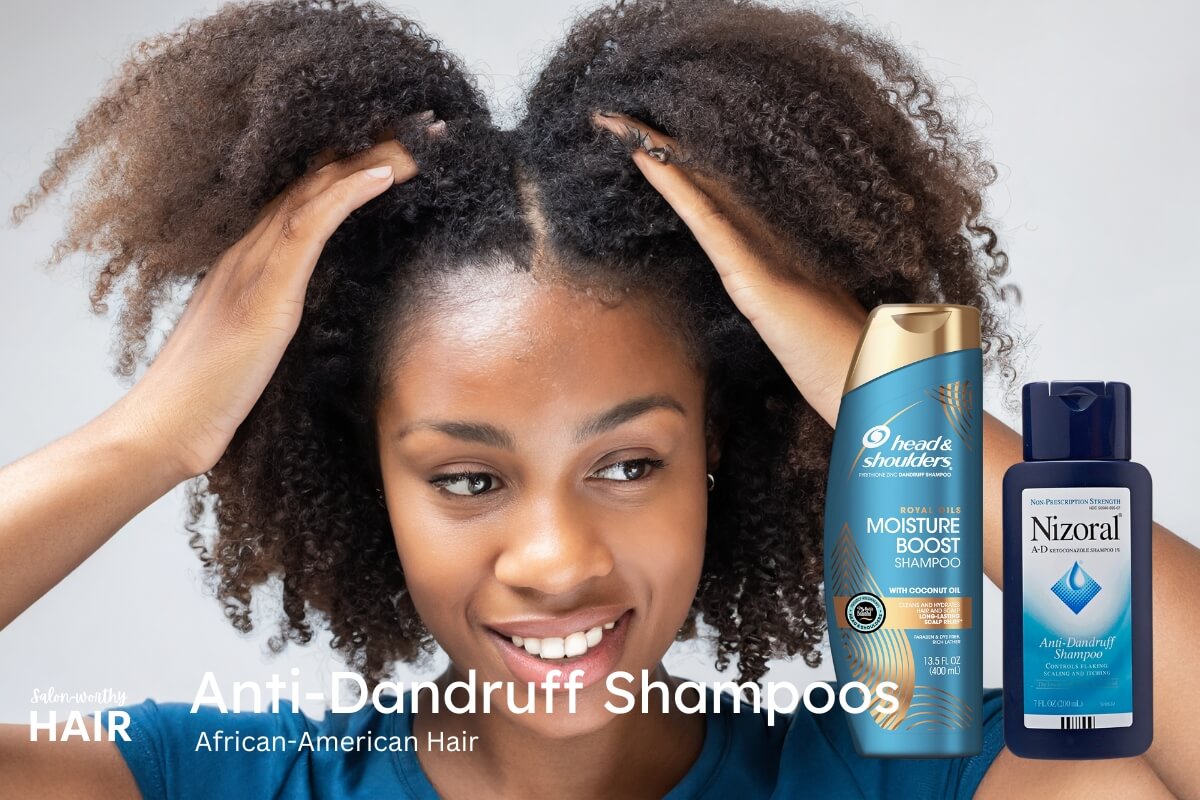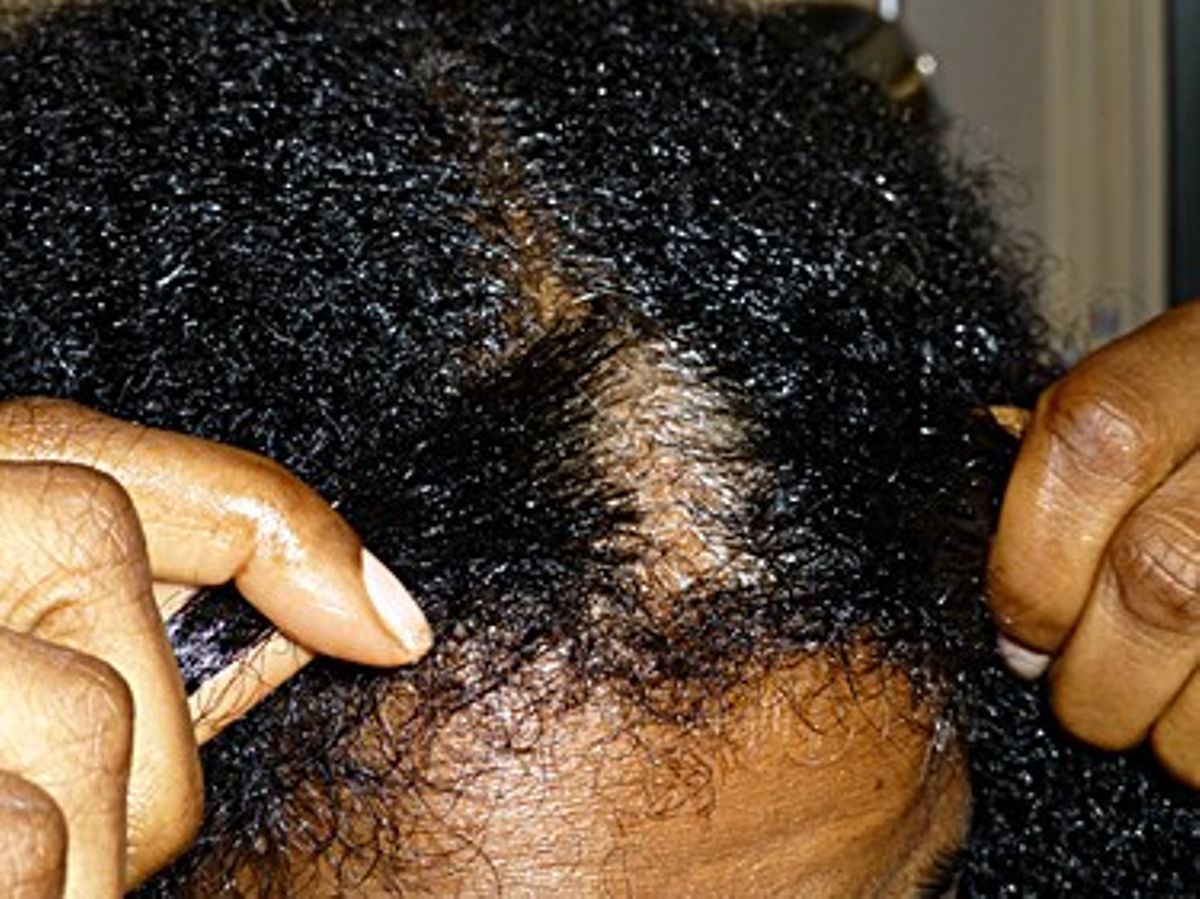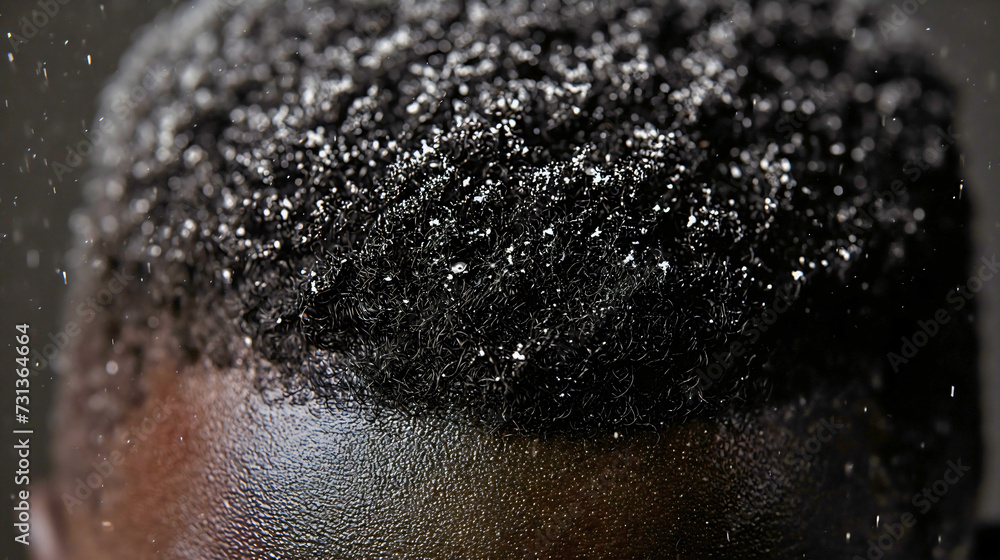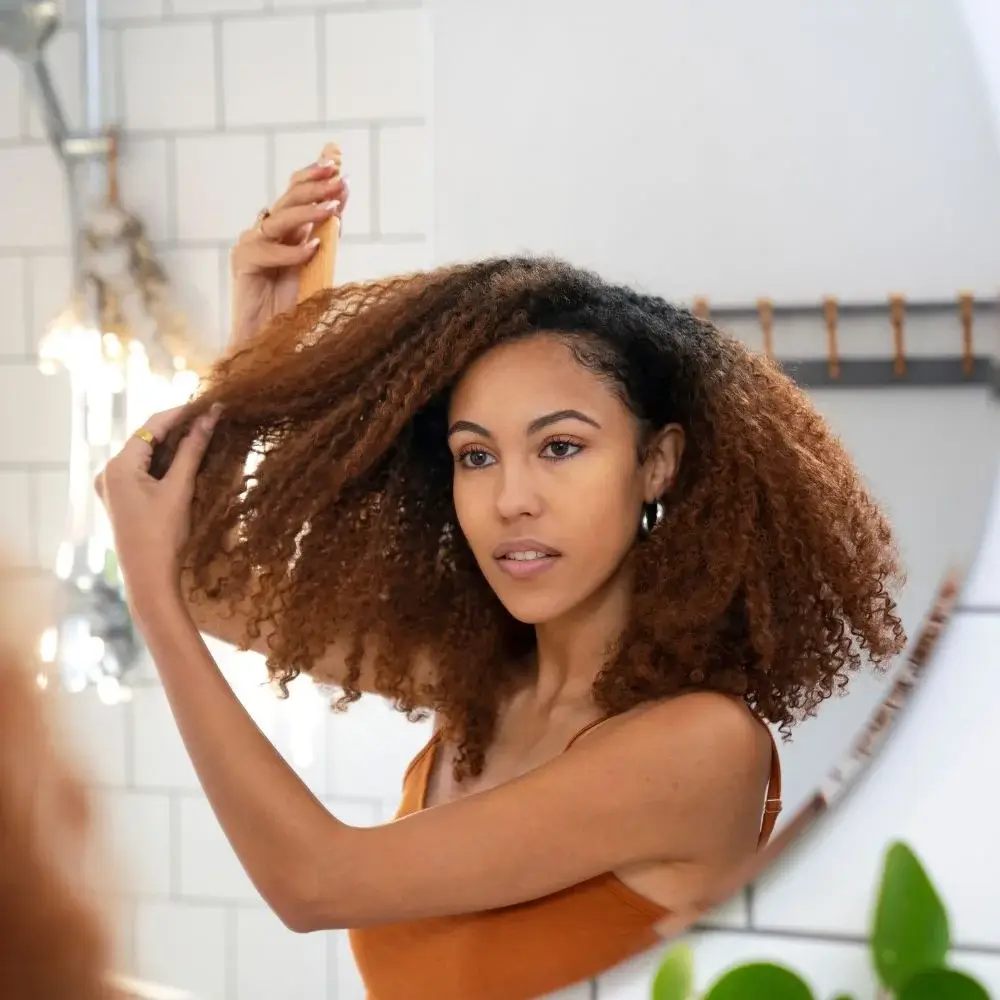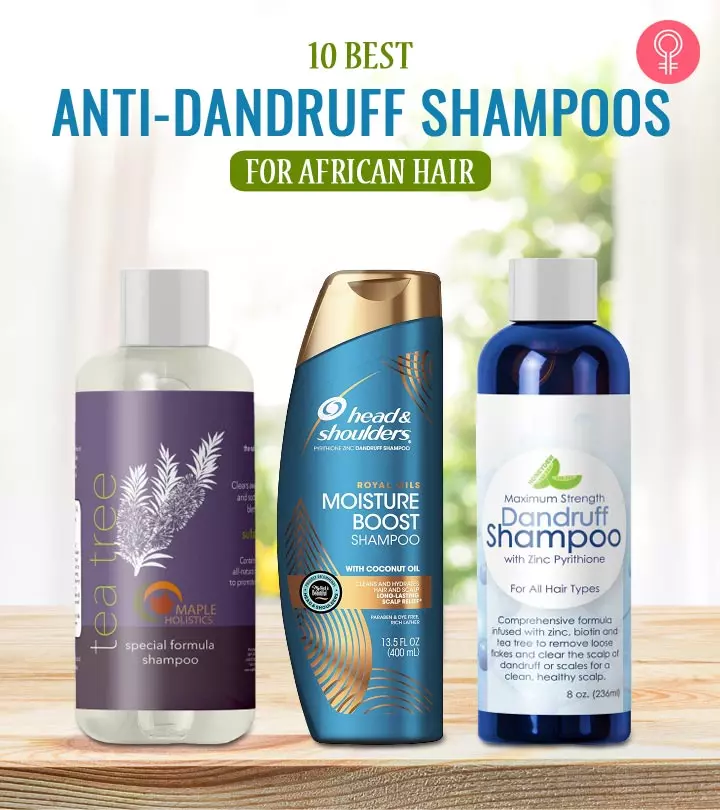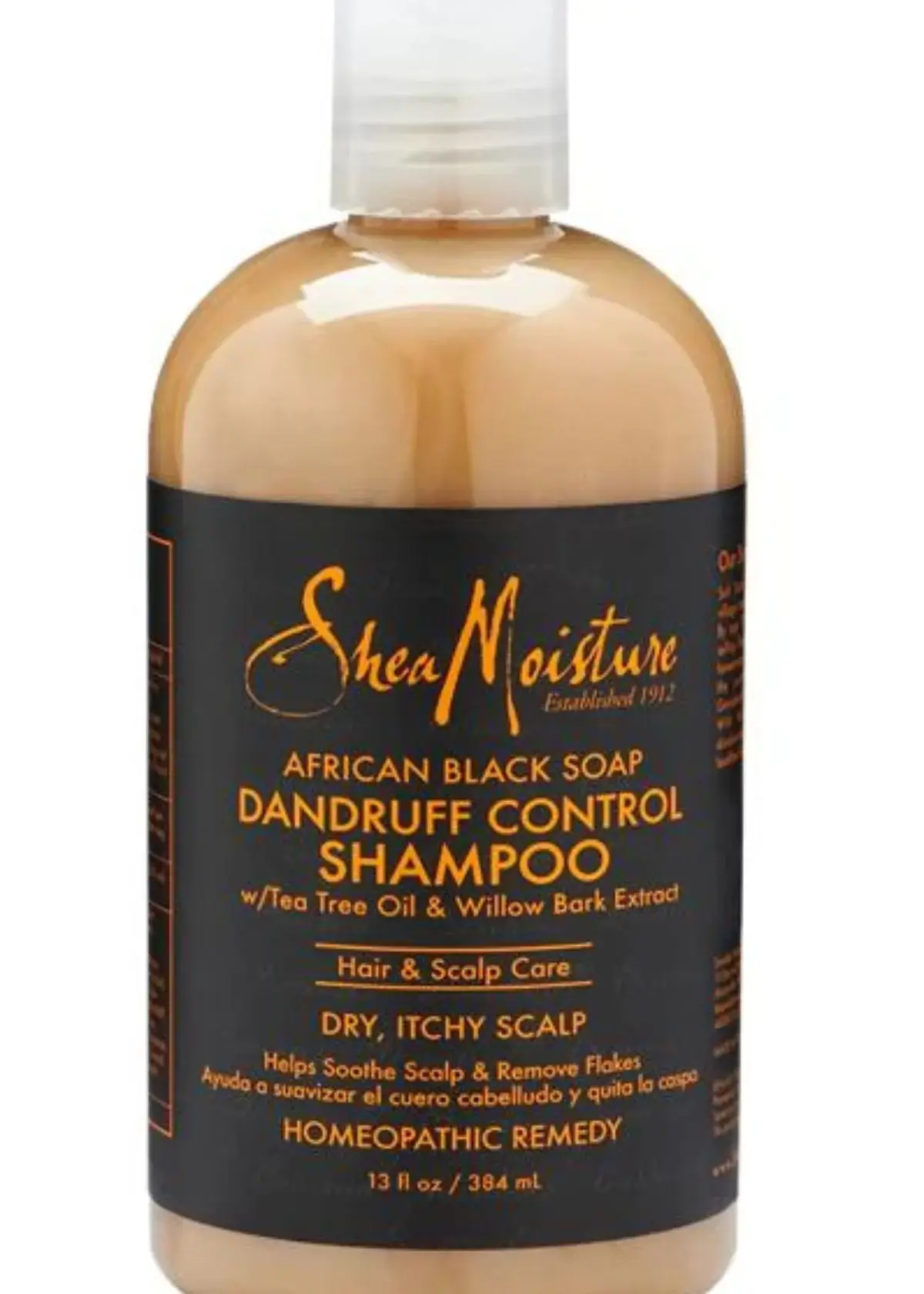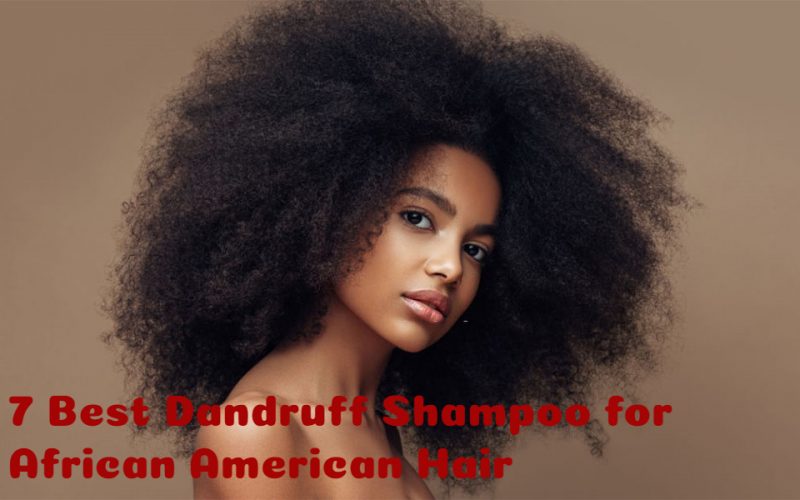How To Treat Dandruff In African American Hair

Itchy, flaky, and often embarrassing, dandruff is a common scalp condition that affects millions. While it impacts people of all ethnicities, managing dandruff in African American hair presents unique challenges. The distinct characteristics of textured hair, including its curl pattern, porosity, and fragility, demand a specialized approach to treatment.
This article provides a comprehensive guide on how to effectively treat dandruff in African American hair. We will delve into the causes, specific considerations for textured hair, and evidence-based treatment strategies. This article will help individuals regain a healthy, flake-free scalp by focusing on gentle yet effective solutions.
Understanding Dandruff and its Causes
Dandruff, also known as seborrheic dermatitis, is a common scalp condition that causes flaking, itching, and sometimes redness. Several factors can contribute to dandruff, including a yeast-like fungus called Malassezia globosa. Overgrowth of this fungus, often triggered by hormonal changes, stress, or a weakened immune system, can disrupt the scalp's natural oil production.
Dry skin is another common cause, particularly during colder months. Certain skin conditions, such as eczema and psoriasis, can also manifest as dandruff-like symptoms on the scalp. Infrequent shampooing can also contribute to the buildup of dead skin cells and oils, exacerbating the condition.
Unique Considerations for African American Hair
African American hair tends to be drier than other hair types due to its coiled structure. This makes it difficult for natural oils produced by the scalp to travel down the hair shaft. The use of certain styling products, such as heavy oils and pomades, can also contribute to dandruff by clogging pores and creating a breeding ground for Malassezia.
Furthermore, many African Americans use protective styles like braids, weaves, and wigs to promote hair growth and protect their natural hair. While beneficial, these styles can trap moisture and product buildup, leading to scalp irritation and dandruff. Choosing the right products and maintaining proper scalp hygiene while wearing protective styles is paramount.
Due to the fragility of textured hair, harsh shampoos and vigorous scrubbing should be avoided. These can damage the hair shaft and irritate the scalp, worsening dandruff. Gentle cleansing and moisturizing are key to managing dandruff without compromising hair health.
Treatment Strategies for Dandruff in African American Hair
Effective dandruff treatment involves a combination of lifestyle adjustments and the use of appropriate hair care products. Frequent washing is critical, but the type of shampoo matters greatly. Look for shampoos specifically formulated for dandruff, containing active ingredients like pyrithione zinc, selenium sulfide, or ketoconazole.
These ingredients help control the growth of Malassezia and reduce inflammation. However, it's crucial to alternate between medicated shampoos and moisturizing shampoos to prevent excessive dryness. When using medicated shampoos, follow the instructions carefully and leave the shampoo on the scalp for the recommended time before rinsing.
Moisturizing the scalp is just as important as cleansing it. Use a lightweight, oil-free moisturizer to hydrate the scalp without clogging pores. Natural oils like coconut oil or shea butter can also be beneficial, but should be used sparingly and carefully to avoid buildup. Consider diluting these oils with water before applying them to the scalp.
Scalp Care Practices for Healthy Hair
Regular scalp massages can help improve circulation and remove dead skin cells. Use your fingertips to gently massage the scalp in circular motions for a few minutes each day. This practice can also help distribute natural oils throughout the hair.
When wearing protective styles, be diligent about cleansing the scalp regularly. Use a diluted shampoo or a specialized scalp cleanser to remove buildup and prevent dandruff. Avoid tight hairstyles that can put stress on the scalp and hair follicles.
Diet plays a crucial role in overall hair and scalp health. Consume a balanced diet rich in vitamins, minerals, and healthy fats. Staying hydrated by drinking plenty of water is also essential for maintaining a healthy scalp.
When to Seek Professional Help
If over-the-counter treatments fail to alleviate dandruff, it's important to consult a dermatologist or trichologist. A professional can accurately diagnose the underlying cause of your dandruff and recommend a more tailored treatment plan. They can also rule out other skin conditions that may be mimicking dandruff.
Prescription-strength medications, such as topical corticosteroids or antifungal creams, may be necessary in severe cases. A professional can also provide guidance on proper hair care practices to prevent future flare-ups. Don't hesitate to seek professional help if you are struggling to manage dandruff on your own.
The Future of Dandruff Treatment
Research into dandruff and its causes is ongoing, leading to the development of new and innovative treatments. Scientists are exploring alternative antifungal agents and novel delivery systems to improve the efficacy of existing treatments. Furthermore, research into the role of the scalp microbiome in dandruff is paving the way for personalized treatment approaches.
Ultimately, managing dandruff in African American hair requires a multifaceted approach that considers the unique characteristics of textured hair. By understanding the causes of dandruff, adopting appropriate hair care practices, and seeking professional help when needed, individuals can achieve a healthy, flake-free scalp and maintain beautiful, healthy hair.

